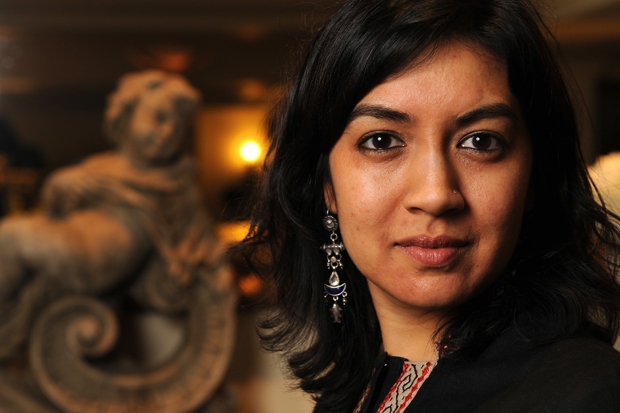Mysteries abound here — enigmas of identity and betrayal, long-buried secret transactions leading to quests — for a lost child, an abandoned wife, a missing mother… The Bones of Grace has a narrative as fragmented as a scattered jigsaw, initially puzzling, with seemingly disparate stories slowly coming together one by one, until the moment a last piece clicks sweetly into place to give us the revelation of a perfect, satisfying whole.
The book is conceived as a love letter from Zubaida, a young Bangladeshi palaeontologist at Harvard, to Elijah, a stranger who comforts her when she weeps at a Shostakovich concert. Love at first sight, but bad timing: she’s leaving to join a much-coveted expedition to Pakistan, to dig for the skeleton of Ambulocetus, the ‘walking whale’, an intriguing evolutionary blip. The dig is halted when the Pakistan military storm in and arrest (possibly murder) one of the team. Traumatised, Zubaida retreats to Dhaka, enveloped by her affluent family and wedded to the ‘suitable boy’ they always intended her to marry.
Zubaida is suspended in limbo, caught between different worlds and conflicting loyalties; between her husband and the man who could change her destiny. She and Elijah communicate using song titles as coded texts — who knew Nina Simone could be so functional? Concealed beneath Zubaida’s apparently confident exterior is deep unease: she was adopted as a baby, and meeting Elijah’s ‘perfect’ family in Boston has reawakened old fears about the birth mother nobody wants to discuss. In a fit of revulsion against her own inertia, she joins a documentary project covering working life (and death) on the Chittagong ship-breaking yards — a decision that will transform her life, and open a door to her past and her future.
Tahmima Anam, one of Granta’s Best Young British novelists of 2013, carried off the Commonwealth Writers’ award for a first novel with A Golden Age. Critics enthused over her second, The Good Muslim. A British Bangladeshi herself, she writes of the country of her birth with lyricism and despairing anger, laying bare the injustices in everyday life for the have-nots. But The Bones of Grace is no misery read: families are anatomised with humour and tenderness, particularly Zubaida’s adoptive parents, freedom fighters in the War of Independence.
Anam has a sharp eye for social ostentation — Ferragamo sandals with designer saris, a floodlit rooftop pool on a Dhaka townhouse, a living room so vast it has four separate seating arrangements, each with its own colour scheme.
Shifting back and forth, from a ‘now’ when the letter that forms the spine of the book is being written, to various pasts, the story moves across continents, from Harvard to rural Bangla village to Dubai skyscraper, social and political worlds handled with acuity, in sometimes harrowing detail. I was less convinced by the love story — Elijah seemed a romantic wish-fulfilment fabrication. What grips and shocks is the reality of the losers in the game of life here; the pathos of hope; the horror of the ship-breaking yards, frail bodies dangling high above the seashore in a hellish landscape of dismembered hulls, where a luxury liner lies like a stranded whale, the carcass stripped to its skeleton.
Zubaida’s life begins to unravel, and a longed-for visit from Elijah ends disastrously as she’s drawn ever more intimately into the brutal world of the exploited and penniless. But she is about to discover a crucial link, a missing part in the pattern that reinforces Donne’s observation about islands and men. As for the love story: will it have a happy ending? Faites vos jeux: the wheel spins.






Comments